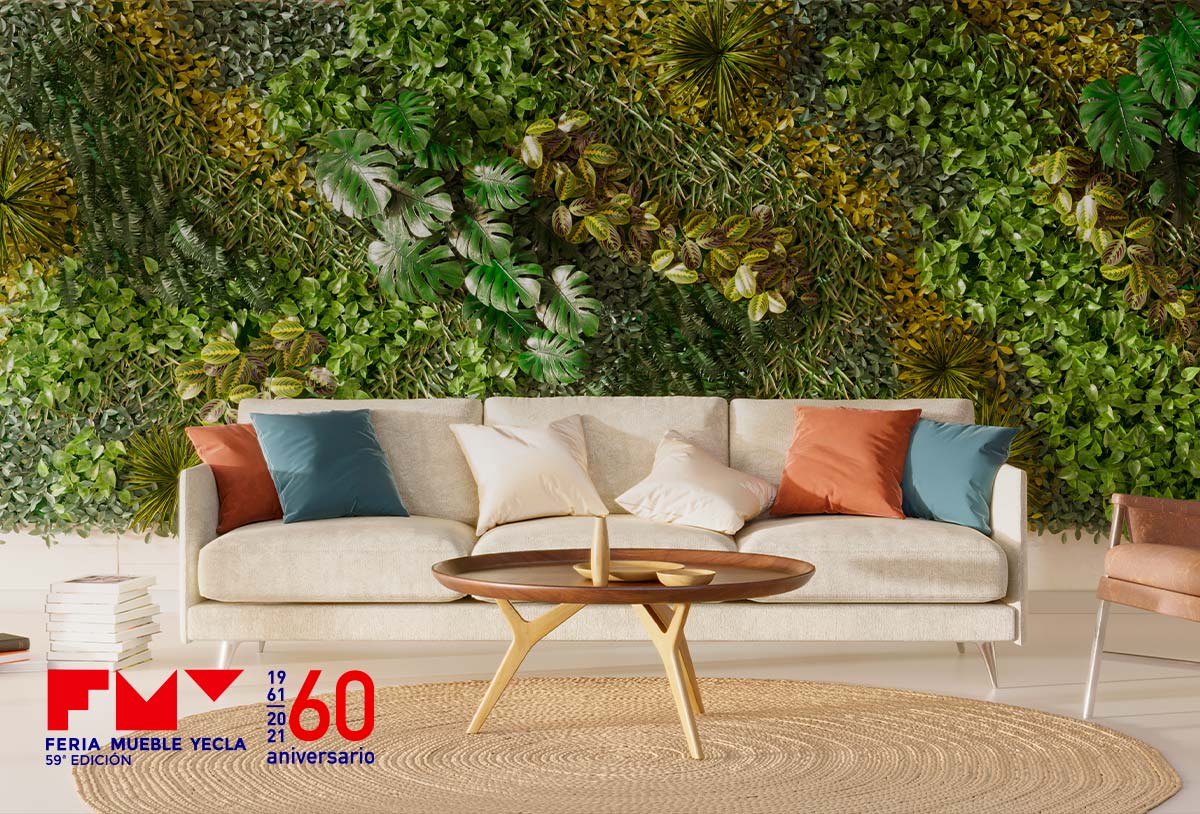
17 Aug Innovation to care for people and the planet: circular economy and sustainability
R&D&I and other topics will be discussed at the ”re_conec+” FMY space.
Protecting the business ecosystem, partnerships and resources that make it possible to design, produce and offer products in the furniture, timber and related sectors requires investment and time in research, development and innovation (R&D&I). Likewise, the ability to innovate to care for people and the planet requires a solid focus on eco-sustainable solutions.
The Region of Murcia is committed to this sort of studies and applied research, with the aim not only of improving good living, but also in terms of smart furniture, health, circular economy, sustainability and design. The concept of circular economy has been evolving towards a new model that seeks business sustainability through keys such as redesign, reduce, reuse, repair, renew, recover and recycle, among others. Towards this end, the Region of Murcia already has carried out several research and studies, some of them led by the Technological Centre of Furniture and Timber of the Region of Murcia (CETEM).
Furniture and related sectors are moving towards caring for natural resources and sustainability in production. When asked about examples of the circular economy, we can tell you about some that are being carried out in the Region of Murcia. “At CETEM, and financed by the Instituto de Fomento de la Región de Murcia (INFO), the design and manufacture of boards made with waste from the agri-food industry, such as artichokes, is being studied; “with the organic material that is not used, we carry out a process and through certain treatments, the base of a chipboard is made”, says its director José Francisco Puche Forte.
A commitment to the circular economy, which is also studied with “the scraps from the wine sector, becoming a by-product of the furniture industry”, to foster reuse, recycling and new uses, towards zero waste. Evolving towards production models which are sensitive to reality, based on the circular economy and zero waste, is already a fact.
This is the case of the U2 project: Upcycling the Upholstery, an initiative of two leading upholstery manufacturers, Fama and Sancal, in which CETEM has joined to provide R&D support during the project development, with the financial support of the regional government’s R&D Challenges scheme, through INFO, and ERDF co-financing funds. It is a challenging project to achieve an industry with a lower carbon footprint.
Furthermore, within the plans that are being developed and that are committed to R&D&I, it is worth highlighting the Bioemerger project, co-financed by the regional government through the Regional Ministry of Enterprise, Employment, Universities and Spokesperson’s Office. The project seeks to provide a sustainable outlet for polyurethane foam contained in sofas. This material is mainly used in the production of mattresses, chairs, armchairs and sofas, elements that are often renewed with some frequency and generate tons of waste per year.
Being fully aware that there is currently no sustainable alternative for the management of this waste, Bioemerger is working on three ways of recycling to solve this problem: through foam biodegradation using microorganisms, which gradually eat up the foam and make it disappear; through recycling, extracting a compound to reuse the material and by recovering the foam using its caloric power as a fuel.
Bioemerger partners are a multidisciplinary team of 5 bodies with a wide technological complementarity, capable of tackling the different courses of action defined to achieve the project’s objective. These bodies are CETEM; the Technological Centre for Energy and Environment (CETENMA); Interplasp; Microgaia Biotech; and the Centre for Soil Science and Applied Biology of Segura (CEBAS).
These examples help us to reflect on the importance and commitment to combine and foster care for the relations between the planetary and business ecosystems. These are studies and trial projects which will be implemented in the medium and long term, and whose aim is to reduce the impact on nature, while at the same time meeting people’s needs.
“The aim is to ensure that everything which is built is as environmentally friendly as possible and uses as few resources as possible,” stresses the CETEM director. “Keeping our environment in good condition depends on small steps. These steps will ensure that we can leave our children a better planet.
Where can we share all these news and much more during the event? Espacio re_conec+a. Leisure and Networking’.
We are much more than an exhibition fair, we are a place for learning and growth where we are committed to building customer loyalty and increasing your professional network. That is why this year we are offering a new space for leisure and networking where customers and professionals can share the latest news and projects that will shape the future.
This new location that we have added to our fair will be ‘Espacio re_conec+a. Leisure and Networking’, a place designed ad hoc with the aim of creating a favourable and trusting atmosphere, with music in the background, so that professionals and customers can enjoy and build bonds.




Sorry, the comment form is closed at this time.